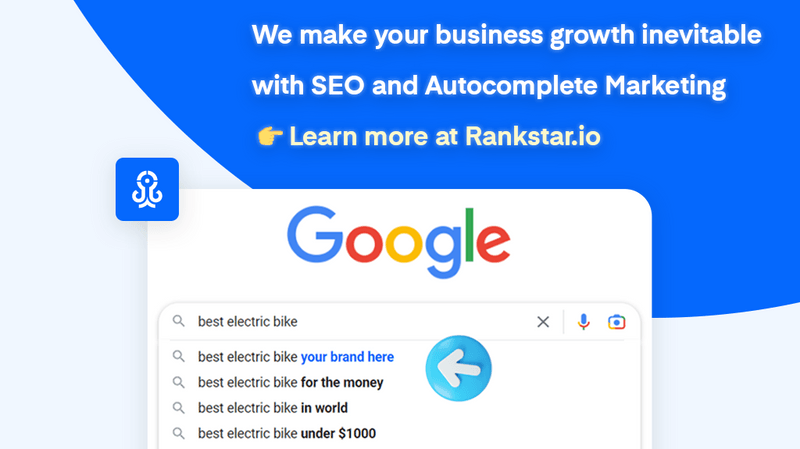The emergence of Programmatic SEO has revolutionized the way businesses optimize search traffic. This article explores this strategy, highlighting the role of keyword research and competitive analysis in identifying potential landing pages.
It further discusses the application of this strategy across various industries while avoiding the creation of doorway pages. The aim is to provide insights into mastering Programmatic SEO, underscoring its significance in today’s digital landscape.

Key Takeaways
- Programmatic SEO focuses on creating high-volume landing pages with transactional intent.
- Keyword research, Topic Map Building, website audit, and competitive analysis are important for identifying target keywords and analyzing competitors.
- Creating landing pages based on search intent is crucial for success in programmatic SEO.
- Programmatic SEO can be applied in different industries such as iGaming, Startups, and e-commerce stores.
Understanding Programmatic SEO: An Overview
Programmatic SEO, employed by platforms such as Tripadvisor and Airbnb, addresses the burgeoning search traffic through the mass creation of landing pages, thereby prioritizing user experience and bypassing the often sluggish SEO process.
This innovative approach involves the generation of high-volume landing pages with transactional intent, allowing businesses to meet the demands of an ever-increasing internet-based clientele. The strategy hinges on research of pertinent keywords and the subsequent analysis of competing entities in the search results.
This data-driven approach enables the creation of landing pages at an unprecedented scale, ultimately enhancing user experience. It is noteworthy that the effective implementation of Programmatic SEO is industry-dependent, with platforms such as Amazon and Expedia exemplifying its successful adaptation in e-commerce and two-sided marketplace respectively.
The Crucial Role of Keyword Research in Programmatic SEO
Understanding the role of keyword research in large-scale search engine optimization requires a deep dive into the utilization of head terms, primary and secondary modifiers, and the effective analysis of competitor data.
Head terms, broad level categories for ranking, are combined with primary modifiers to create new categories and secondary modifiers for additional description.
Tools such as Google Trends and Keyword Generator are instrumental in gauging search volume. For local intent targeting, a combination of head term and location often proves beneficial.
A comprehensive analysis of top results for targeted keywords identifies leading competitors. Utilization of tools including Ahrefs, SEMRush, Moz, and Ubersuggest provides an in-depth understanding of the competition’s keyword rankings, backlinks and the preferred title tag tools.
Competitive Analysis: Gaining an Edge in Programmatic SEO
Competitive analysis in the realm of large-scale search engine optimization entails a thorough examination of top-ranking entities for targeted keywords, a process facilitated by tools such as Ahrefs, SEMRush, Moz, and Ubersuggest.
This analysis identifies the quantity of keywords competitors rank for, along with their backlink profiles. It also reveals common user experience patterns and preferred title tag tools among direct competitors.
Ubersuggest, a cost-effective tool, provides insights into competitors’ keyword rankings. By understanding the competitive landscape, strategies can be formulated to outperform these competitors.
In essence, the competitive analysis in programmatic SEO is not merely a reactive process, but a proactive approach that equips businesses with strategic insights to gain a competitive edge in the digital market.
Crafting High-Volume Landing Pages: The Heart of Programmatic SEO
Crafting high-volume landing pages forms the crux of programmatic SEO, as it involves the creation of pages based on search intent related to keyword research. This approach enables the accommodation of an extensive range of queries, thereby enhancing the likelihood of appearing in search engine results.
Utilizing user algorithms and Google’s own data, search intent is determined. This information is crucial for the formulation of content that resonates with the target audience’s needs and preferences.
It is necessary to examine ‘Searches related to’ at the bottom of the search page in Google search console and bolded words in search results. These strategies provide insights into a keyword’s relevance, guiding the creation of landing pages at scale.
Decoding Google’s Search Intent for Effective Programmatic SEO
Decoding Google’s search intent plays a crucial role in the effective implementation of programmatic SEO, as it helps to tailor landing pages to match the queries of the target audience. This process utilizes algorithms to determine the intent behind a search query, enabling the creation of pertinent landing pages.
Google’s algorithm interprets search intent by analyzing user data and query patterns.
The ‘Autocomplete search suggestions‘ and ‘Related Searches‘ section at the bottom of Google’s search pages can provide insight into common search patterns and related queries.
Bolded terms within Google’s search results emphasize keywords of importance, aiding in the identification of relevant search intent.
Understanding these elements can significantly enhance the efficiency of programmatic SEO, ensuring the generation of high-volume landing pages that address the specific needs of the target audience.
Applying Programmatic SEO Across Various Industries
Applying algorithmic optimization techniques to enhance search engine visibility shows varied execution across different industries.
For example, community forums, including Reddit and Quora, generate unique content, thereby improving search visibility.
Two-sided marketplaces like Yelp and Expedia attract vendors and customers through unique content on each page, effectively utilizing programmatic SEO.
E-commerce platforms, such as Amazon and Etsy, employ these techniques to provide unique product details and user-generated content like reviews.
Notably, the avoidance of doorway pages, designed solely to rank highly, is observed across all sectors. Instead, the focus is on creating valuable and relevant content, a crucial factor in improving search engine rankings.
The Fine Line: Avoiding Doorway Pages in Programmatic SEO
In the previous section, a comprehensive analysis was provided of how programmatic SEO is utilized across diverse industries, spanning from community forums to e-commerce platforms.
Now, the focus shifts to a crucial aspect of this SEO practice: avoiding the creation of doorway pages.
- Doorway pages are web pages created solely for spamdexing, which involves manipulating a search engine’s index in order to gain higher rankings.
- These pages offer little added value to users and often lead to poor user experiences.
- Their creation is considered a violation of Google’s Webmaster Guidelines.
Thus, when implementing a programmatic SEO strategy, it is essential to distinguish between generating high-volume, intent-focused landing pages and creating doorway pages.
The next section explores strategies to maintain this balance.
Frequently Asked Questions
What Are the Common Pitfalls to Avoid When Implementing Programmatic Seo?”
Common pitfalls when implementing programmatic SEO include neglecting user experience, creating low-quality landing pages at scale, overlooking search intent, inadequate keyword research, and inappropriate usage of doorway pages designed solely for high rankings.
How Can Small Businesses Leverage Programmatic SEO to Compete With Larger Companies?”
Small businesses can leverage programmatic SEO by creating high-volume, keyword-targeted landing pages, conducting competitive analysis, and focusing on user experience. This strategy can enhance their online presence and competitiveness against larger corporations.
What Are Some Examples of Successful Programmatic SEO Campaigns?”
Successful programmatic SEO campaigns include those conducted by TripAdvisor and Yelp, which utilized large-scale landing page publication to attract search traffic, optimising user experience and bypassing traditional, slower SEO methods.
How Has the Evolution of Google’s Algorithms Affected Programmatic SEO Strategies?”
The evolution of Google’s algorithms has significantly impacted programmatic SEO strategies, necessitating more sophisticated, user-focused approaches. These changes have led to an increased emphasis on high-quality content and user experience optimization on a large scale.
What Role Does Social Media Play in Supporting a Programmatic SEO Strategy?”
Social media plays a crucial role in programmatic SEO strategy, facilitating user engagement, content dissemination, and backlink generation. It enhances online visibility, thus indirectly contributing to an improved organic search engine ranking.


















